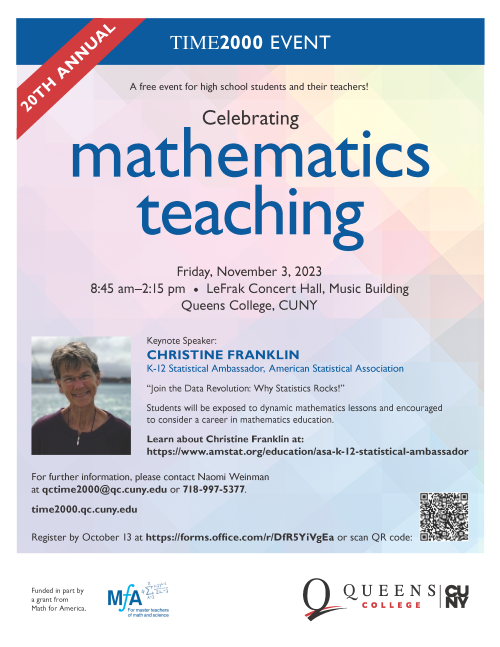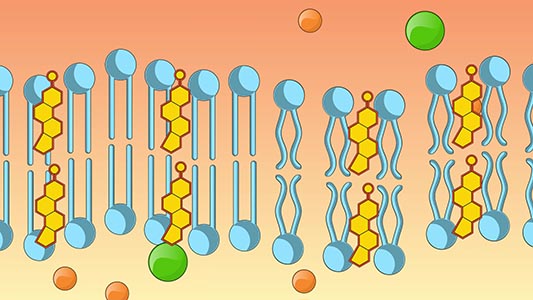This year marks the 25th anniversary of the TIME 2000 Program and the 20th anniversary of the annual TIME 2000 conference: “Celebrating Mathematics Teaching.” The conference, attended by hundreds of high school students and their math teachers, celebrates the joy of mathematics and promotes mathematics education as a rewarding career option. To commemorate this significant milestone, the Queens College Library has compiled a bibliography of research and reports related to the TIME 2000 program since its inception.
Founded in 1997 by Queens College Professors Alice Artzt and Eleanor Armour Thomas with funding from the National Science Foundation, The Teaching Improvement through Mathematics Education (TIME) 2000 is a highly successful program at the Queens College School of Education dedicated to recruiting and training future mathematics teachers. One of TIME’s innovative features is that students progress through the program as a cohort, providing a valuable support network during their undergraduate experience and serving as the foundation for their future professional connections. On a monthly basis, TIME undergraduates participate in seminars covering topics such as educational technology and the relationship between mathematics and other fields of study.
VIDEO
31 August 2014 “Study With the Best: TIME 2000” CUNY TV 75 video
In exchange for their scholarship, TIME 2000 undergraduates agree to teach for a minimum of two years in middle school or high school. TIME program graduates can be found in schools across the New York Metropolitan area.
We invite you to explore the bibliography to gain a deeper understanding of how TIME 2000 has been an innovator in the field of teacher preparation.
TIME 2000 Bibliography Marking the 25th Anniversary Books & Book Sections
5242181
2875CCRV
1
apa
50
creator
asc
8631
https://library.qc.cuny.edu/wp-content/plugins/zotpress/
%7B%22status%22%3A%22success%22%2C%22updateneeded%22%3Afalse%2C%22instance%22%3Afalse%2C%22meta%22%3A%7B%22request_last%22%3A0%2C%22request_next%22%3A0%2C%22used_cache%22%3Atrue%7D%2C%22data%22%3A%5B%7B%22key%22%3A%22ESGCDDR2%22%2C%22library%22%3A%7B%22id%22%3A5242181%7D%2C%22meta%22%3A%7B%22lastModifiedByUser%22%3A%7B%22id%22%3A7704021%2C%22username%22%3A%22qclibrary%22%2C%22name%22%3A%22%22%2C%22links%22%3A%7B%22alternate%22%3A%7B%22href%22%3A%22https%3A%5C%2F%5C%2Fwww.zotero.org%5C%2Fqclibrary%22%2C%22type%22%3A%22text%5C%2Fhtml%22%7D%7D%7D%2C%22creatorSummary%22%3A%22Artzt%20and%20Curcio%22%2C%22parsedDate%22%3A%222021%22%2C%22numChildren%22%3A0%7D%2C%22bib%22%3A%22%3Cdiv%20class%3D%5C%22csl-bib-body%5C%22%20style%3D%5C%22line-height%3A%202%3B%20padding-left%3A%201em%3B%20text-indent%3A-1em%3B%5C%22%3E%5Cn%20%20%3Cdiv%20class%3D%5C%22csl-entry%5C%22%3EArtzt%2C%20A.%20F.%2C%20%26amp%3B%20Curcio%2C%20F.%20R.%20%28Eds.%29.%20%282021%29.%20%3Ci%3EThe%20inspirational%20untold%20stories%20of%20secondary%20mathematics%20teachers%3C%5C%2Fi%3E.%20Information%20Age%20Publishing%2C%20Inc.%20%3Ca%20class%3D%27zp-ItemURL%27%20href%3D%27https%3A%5C%2F%5C%2Fcuny-qc.primo.exlibrisgroup.com%5C%2Fpermalink%5C%2F01CUNY_QC%5C%2F347ek8%5C%2Falma9994477979706137%27%3Ehttps%3A%5C%2F%5C%2Fcuny-qc.primo.exlibrisgroup.com%5C%2Fpermalink%5C%2F01CUNY_QC%5C%2F347ek8%5C%2Falma9994477979706137%3C%5C%2Fa%3E%3C%5C%2Fdiv%3E%5Cn%3C%5C%2Fdiv%3E%22%2C%22data%22%3A%7B%22itemType%22%3A%22book%22%2C%22title%22%3A%22The%20inspirational%20untold%20stories%20of%20secondary%20mathematics%20teachers%22%2C%22creators%22%3A%5B%7B%22creatorType%22%3A%22editor%22%2C%22firstName%22%3A%22Alice%20F.%22%2C%22lastName%22%3A%22Artzt%22%7D%2C%7B%22creatorType%22%3A%22editor%22%2C%22firstName%22%3A%22Frances%20R.%22%2C%22lastName%22%3A%22Curcio%22%7D%5D%2C%22abstractNote%22%3A%22%5C%22Personal%20story%20telling%20is%20a%20powerful%20and%20interesting%20medium%20through%20which%20one%20can%20share%20experiences%2C%20insights%2C%20successes%2C%20and%20difficulties%20in%20meaningful%20contexts.%20Teaching%20in%20general%2C%20and%20mathematics%20teaching%20in%20particular%2C%20is%20much%20more%20than%20what%20meets%20the%20eye.%20Most%20people%20have%20only%20experienced%20teaching%20from%20the%20vantage%20point%20of%20a%20student%20and%20have%20impressions%20of%20teachers%20and%20teaching%20that%20are%20simplistic%20and%20usually%20totally%20incorrect.%20The%20lives%20of%20mathematics%20teachers%20are%20varied%20and%20contrary%20to%20what%20one%20might%20think%20they%20are.%20The%20journeys%20of%20exemplary%20in-service%20teachers%20are%20not%20linear%3B%20there%20are%20many%20bends%2C%20potholes%2C%20and%20detours%20through%20which%20they%20have%20navigated.%20The%20%5C%22road%20conditions%5C%22%20of%20teaching%20are%20fodder%20for%20the%2012%20untold%20stories%20collected%20in%20this%20volume%2C%20whose%20authors%20graduated%20from%20a%20special%20four-year%20undergraduate%20mathematics%20teacher%20preparation%20program%2C%20containing%20innovative%20components%2C%20many%20of%20which%20are%20revealed%20through%20the%20experiences%20described%20in%20their%20stories.%20The%20range%20of%20narratives%20vary%20in%20every%20possible%20way%2C%20from%20the%20reasons%20they%20became%20mathematics%20teachers%2C%20to%20the%20number%20of%20years%20teaching%2C%20to%20the%20experiences%20encountered%20while%20teaching%2C%20to%20the%20different%20roles%20they%20have%20assumed%20throughout%20their%20careers.%20Nevertheless%2C%20one%20strand%20permeates%20all%20of%20the%20stories--their%20passion%20for%20what%20they%20do%20and%20their%20ability%20to%20reflect%20on%20early%20college%20experiences%20that%20contribute%20to%20their%20performance.%20These%20inspiring%20narratives%20will%20shed%20light%20on%20the%20developmental%20processes%20of%20mathematics%20teachers%2C%20what%20it%20means%20to%20teach%20mathematics%2C%20and%20the%20components%20of%20a%20secondary%20mathematics%20teacher%20preparation%20program%20that%20can%20contribute%20to%20their%20expertise%5C%22--%22%2C%22date%22%3A%222021%22%2C%22language%22%3A%22%22%2C%22ISBN%22%3A%22978-1-64802-203-6%22%2C%22url%22%3A%22https%3A%5C%2F%5C%2Fcuny-qc.primo.exlibrisgroup.com%5C%2Fpermalink%5C%2F01CUNY_QC%5C%2F347ek8%5C%2Falma9994477979706137%22%2C%22collections%22%3A%5B%222875CCRV%22%5D%2C%22dateModified%22%3A%222023-10-19T13%3A59%3A11Z%22%7D%7D%2C%7B%22key%22%3A%22VQSHRU32%22%2C%22library%22%3A%7B%22id%22%3A5242181%7D%2C%22meta%22%3A%7B%22lastModifiedByUser%22%3A%7B%22id%22%3A7704021%2C%22username%22%3A%22qclibrary%22%2C%22name%22%3A%22%22%2C%22links%22%3A%7B%22alternate%22%3A%7B%22href%22%3A%22https%3A%5C%2F%5C%2Fwww.zotero.org%5C%2Fqclibrary%22%2C%22type%22%3A%22text%5C%2Fhtml%22%7D%7D%7D%2C%22creatorSummary%22%3A%22Artzt%20and%20Sultan%22%2C%22parsedDate%22%3A%222007%22%2C%22numChildren%22%3A0%7D%2C%22bib%22%3A%22%3Cdiv%20class%3D%5C%22csl-bib-body%5C%22%20style%3D%5C%22line-height%3A%202%3B%20padding-left%3A%201em%3B%20text-indent%3A-1em%3B%5C%22%3E%5Cn%20%20%3Cdiv%20class%3D%5C%22csl-entry%5C%22%3EArtzt%2C%20A.%2C%20%26amp%3B%20Sultan%2C%20A.%20%282007%29.%20Reforming%20Mathematics%20Teacher%20Preparation%3A%20Now%20is%20the%20TIME%21%20In%20%3Ci%3EIssues%20in%20Theory%20and%20Practice%20in%20the%20Teaching%20of%20Mathematics%3C%5C%2Fi%3E%20%28pp.%2072%26%23x2013%3B81%29.%20Russian%20State%20Pedagogical%20University%20Press.%3C%5C%2Fdiv%3E%5Cn%3C%5C%2Fdiv%3E%22%2C%22data%22%3A%7B%22itemType%22%3A%22bookSection%22%2C%22title%22%3A%22Reforming%20Mathematics%20Teacher%20Preparation%3A%20Now%20is%20the%20TIME%21%22%2C%22creators%22%3A%5B%7B%22creatorType%22%3A%22author%22%2C%22firstName%22%3A%22Alice%22%2C%22lastName%22%3A%22Artzt%22%7D%2C%7B%22creatorType%22%3A%22author%22%2C%22firstName%22%3A%22Alan%22%2C%22lastName%22%3A%22Sultan%22%7D%5D%2C%22abstractNote%22%3A%22%22%2C%22bookTitle%22%3A%22Issues%20in%20Theory%20and%20Practice%20in%20the%20Teaching%20of%20Mathematics%22%2C%22date%22%3A%222007%22%2C%22language%22%3A%22%22%2C%22ISBN%22%3A%22%22%2C%22url%22%3A%22%22%2C%22collections%22%3A%5B%222875CCRV%22%5D%2C%22dateModified%22%3A%222023-10-19T13%3A59%3A11Z%22%7D%7D%2C%7B%22key%22%3A%22K9TQAU9S%22%2C%22library%22%3A%7B%22id%22%3A5242181%7D%2C%22meta%22%3A%7B%22lastModifiedByUser%22%3A%7B%22id%22%3A7704021%2C%22username%22%3A%22qclibrary%22%2C%22name%22%3A%22%22%2C%22links%22%3A%7B%22alternate%22%3A%7B%22href%22%3A%22https%3A%5C%2F%5C%2Fwww.zotero.org%5C%2Fqclibrary%22%2C%22type%22%3A%22text%5C%2Fhtml%22%7D%7D%7D%2C%22creatorSummary%22%3A%22Artzt%20et%20al.%22%2C%22parsedDate%22%3A%222023%22%2C%22numChildren%22%3A0%7D%2C%22bib%22%3A%22%3Cdiv%20class%3D%5C%22csl-bib-body%5C%22%20style%3D%5C%22line-height%3A%202%3B%20padding-left%3A%201em%3B%20text-indent%3A-1em%3B%5C%22%3E%5Cn%20%20%3Cdiv%20class%3D%5C%22csl-entry%5C%22%3EArtzt%2C%20A.%2C%20Curcio%2C%20F.%2C%20%26amp%3B%20Sultan%2C%20A.%20%282023%29.%20Incorporating%20Learning-to-Teach%20Trajectories%20and%20Identity%20Development%20in%20a%20Model%20Undergraduate%20Mathematics%20Teacher%20Preparation%20Program.%20In%20%3Ci%3EAMTE%20Professional%20Book%20Series%3C%5C%2Fi%3E.%3C%5C%2Fdiv%3E%5Cn%3C%5C%2Fdiv%3E%22%2C%22data%22%3A%7B%22itemType%22%3A%22bookSection%22%2C%22title%22%3A%22Incorporating%20Learning-to-Teach%20Trajectories%20and%20Identity%20Development%20in%20a%20Model%20Undergraduate%20Mathematics%20Teacher%20Preparation%20Program%22%2C%22creators%22%3A%5B%7B%22creatorType%22%3A%22author%22%2C%22firstName%22%3A%22Alice%22%2C%22lastName%22%3A%22Artzt%22%7D%2C%7B%22creatorType%22%3A%22author%22%2C%22firstName%22%3A%22Francis%22%2C%22lastName%22%3A%22Curcio%22%7D%2C%7B%22creatorType%22%3A%22author%22%2C%22firstName%22%3A%22Alan%22%2C%22lastName%22%3A%22Sultan%22%7D%5D%2C%22abstractNote%22%3A%22%22%2C%22bookTitle%22%3A%22AMTE%20Professional%20Book%20Series%22%2C%22date%22%3A%222023%22%2C%22language%22%3A%22%22%2C%22ISBN%22%3A%22%22%2C%22url%22%3A%22%22%2C%22collections%22%3A%5B%222875CCRV%22%5D%2C%22dateModified%22%3A%222023-10-19T13%3A59%3A11Z%22%7D%7D%2C%7B%22key%22%3A%22MJD8AJ2H%22%2C%22library%22%3A%7B%22id%22%3A5242181%7D%2C%22meta%22%3A%7B%22lastModifiedByUser%22%3A%7B%22id%22%3A7704021%2C%22username%22%3A%22qclibrary%22%2C%22name%22%3A%22%22%2C%22links%22%3A%7B%22alternate%22%3A%7B%22href%22%3A%22https%3A%5C%2F%5C%2Fwww.zotero.org%5C%2Fqclibrary%22%2C%22type%22%3A%22text%5C%2Fhtml%22%7D%7D%7D%2C%22creatorSummary%22%3A%22Artzt%20et%20al.%22%2C%22parsedDate%22%3A%222004%22%2C%22numChildren%22%3A0%7D%2C%22bib%22%3A%22%3Cdiv%20class%3D%5C%22csl-bib-body%5C%22%20style%3D%5C%22line-height%3A%202%3B%20padding-left%3A%201em%3B%20text-indent%3A-1em%3B%5C%22%3E%5Cn%20%20%3Cdiv%20class%3D%5C%22csl-entry%5C%22%3EArtzt%2C%20A.%2C%20Curcio%2C%20F.%2C%20%26amp%3B%20Sultan%2C%20A.%20%282004%29.%20The%20Design%20and%20Implementation%20of%20an%20Innovative%20Four-year%20Secondary%20Mathematics%20Teacher%20Preparation%20Program.%20In%20%3Ci%3EProblems%20of%20Theory%20and%20Practice%20in%20Teaching%20Mathematics%3C%5C%2Fi%3E%20%28pp.%2061%26%23x2013%3B71%29.%20Hertzen%20State%20Pedagogical%20University.%3C%5C%2Fdiv%3E%5Cn%3C%5C%2Fdiv%3E%22%2C%22data%22%3A%7B%22itemType%22%3A%22bookSection%22%2C%22title%22%3A%22The%20Design%20and%20Implementation%20of%20an%20Innovative%20Four-year%20Secondary%20Mathematics%20Teacher%20Preparation%20Program%22%2C%22creators%22%3A%5B%7B%22creatorType%22%3A%22author%22%2C%22firstName%22%3A%22Alice%22%2C%22lastName%22%3A%22Artzt%22%7D%2C%7B%22creatorType%22%3A%22author%22%2C%22firstName%22%3A%22Francis%22%2C%22lastName%22%3A%22Curcio%22%7D%2C%7B%22creatorType%22%3A%22author%22%2C%22firstName%22%3A%22Alan%22%2C%22lastName%22%3A%22Sultan%22%7D%5D%2C%22abstractNote%22%3A%22%22%2C%22bookTitle%22%3A%22Problems%20of%20Theory%20and%20Practice%20in%20Teaching%20Mathematics%22%2C%22date%22%3A%222004%22%2C%22language%22%3A%22%22%2C%22ISBN%22%3A%22%22%2C%22url%22%3A%22%22%2C%22collections%22%3A%5B%222875CCRV%22%5D%2C%22dateModified%22%3A%222023-10-19T13%3A59%3A11Z%22%7D%7D%2C%7B%22key%22%3A%22HR4WTULI%22%2C%22library%22%3A%7B%22id%22%3A5242181%7D%2C%22meta%22%3A%7B%22lastModifiedByUser%22%3A%7B%22id%22%3A7704021%2C%22username%22%3A%22qclibrary%22%2C%22name%22%3A%22%22%2C%22links%22%3A%7B%22alternate%22%3A%7B%22href%22%3A%22https%3A%5C%2F%5C%2Fwww.zotero.org%5C%2Fqclibrary%22%2C%22type%22%3A%22text%5C%2Fhtml%22%7D%7D%7D%2C%22creatorSummary%22%3A%22Artzt%20et%20al.%22%2C%22parsedDate%22%3A%222003%22%2C%22numChildren%22%3A0%7D%2C%22bib%22%3A%22%3Cdiv%20class%3D%5C%22csl-bib-body%5C%22%20style%3D%5C%22line-height%3A%202%3B%20padding-left%3A%201em%3B%20text-indent%3A-1em%3B%5C%22%3E%5Cn%20%20%3Cdiv%20class%3D%5C%22csl-entry%5C%22%3EArtzt%2C%20A.%2C%20Curcio%2C%20F.%2C%20Sultan%2C%20A.%2C%20%26amp%3B%20Wachter%2C%20T.%20%282003%29.%20Rethinking%20Secondary%20Mathematics%20Teacher%20Preparation.%20In%20%3Ci%3EBeyond%20the%20Boundaries%3A%20A%20Transdisciplinary%20Approach%20to%20Learning%20and%20Teaching%3C%5C%2Fi%3E%20%28pp.%2069%26%23x2013%3B80%29.%20Greenwood%20Publishing%20Group%2C%20Inc.%20%3Ca%20class%3D%27zp-ItemURL%27%20href%3D%27https%3A%5C%2F%5C%2Fcuny-qc.primo.exlibrisgroup.com%5C%2Fpermalink%5C%2F01CUNY_QC%5C%2F347ek8%5C%2Falma990047286620106137%27%3Ehttps%3A%5C%2F%5C%2Fcuny-qc.primo.exlibrisgroup.com%5C%2Fpermalink%5C%2F01CUNY_QC%5C%2F347ek8%5C%2Falma990047286620106137%3C%5C%2Fa%3E%3C%5C%2Fdiv%3E%5Cn%3C%5C%2Fdiv%3E%22%2C%22data%22%3A%7B%22itemType%22%3A%22bookSection%22%2C%22title%22%3A%22Rethinking%20Secondary%20Mathematics%20Teacher%20Preparation%22%2C%22creators%22%3A%5B%7B%22creatorType%22%3A%22author%22%2C%22firstName%22%3A%22Alice%22%2C%22lastName%22%3A%22Artzt%22%7D%2C%7B%22creatorType%22%3A%22author%22%2C%22firstName%22%3A%22Francis%22%2C%22lastName%22%3A%22Curcio%22%7D%2C%7B%22creatorType%22%3A%22author%22%2C%22firstName%22%3A%22Alan%22%2C%22lastName%22%3A%22Sultan%22%7D%2C%7B%22creatorType%22%3A%22author%22%2C%22firstName%22%3A%22Tara%22%2C%22lastName%22%3A%22Wachter%22%7D%5D%2C%22abstractNote%22%3A%22%22%2C%22bookTitle%22%3A%22Beyond%20the%20Boundaries%3A%20A%20Transdisciplinary%20Approach%20to%20Learning%20and%20Teaching%22%2C%22date%22%3A%222003%22%2C%22language%22%3A%22%22%2C%22ISBN%22%3A%22978-0-89789-916-1%22%2C%22url%22%3A%22https%3A%5C%2F%5C%2Fcuny-qc.primo.exlibrisgroup.com%5C%2Fpermalink%5C%2F01CUNY_QC%5C%2F347ek8%5C%2Falma990047286620106137%22%2C%22collections%22%3A%5B%222875CCRV%22%5D%2C%22dateModified%22%3A%222023-10-19T13%3A59%3A11Z%22%7D%7D%5D%7D
Artzt, A. F., & Curcio, F. R. (Eds.). (2021).
The inspirational untold stories of secondary mathematics teachers . Information Age Publishing, Inc.
https://cuny-qc.primo.exlibrisgroup.com/permalink/01CUNY_QC/347ek8/alma9994477979706137
Artzt, A., & Sultan, A. (2007). Reforming Mathematics Teacher Preparation: Now is the TIME! In Issues in Theory and Practice in the Teaching of Mathematics (pp. 72–81). Russian State Pedagogical University Press.
Artzt, A., Curcio, F., & Sultan, A. (2023). Incorporating Learning-to-Teach Trajectories and Identity Development in a Model Undergraduate Mathematics Teacher Preparation Program. In AMTE Professional Book Series .
Artzt, A., Curcio, F., & Sultan, A. (2004). The Design and Implementation of an Innovative Four-year Secondary Mathematics Teacher Preparation Program. In Problems of Theory and Practice in Teaching Mathematics (pp. 61–71). Hertzen State Pedagogical University.
Artzt, A., Curcio, F., Sultan, A., & Wachter, T. (2003). Rethinking Secondary Mathematics Teacher Preparation. In
Beyond the Boundaries: A Transdisciplinary Approach to Learning and Teaching (pp. 69–80). Greenwood Publishing Group, Inc.
https://cuny-qc.primo.exlibrisgroup.com/permalink/01CUNY_QC/347ek8/alma990047286620106137
Television
5242181
G9RZM359
1
apa
50
creator
asc
8631
https://library.qc.cuny.edu/wp-content/plugins/zotpress/
%7B%22status%22%3A%22success%22%2C%22updateneeded%22%3Afalse%2C%22instance%22%3Afalse%2C%22meta%22%3A%7B%22request_last%22%3A0%2C%22request_next%22%3A0%2C%22used_cache%22%3Atrue%7D%2C%22data%22%3A%5B%7B%22key%22%3A%22QJ3BW5AI%22%2C%22library%22%3A%7B%22id%22%3A5242181%7D%2C%22meta%22%3A%7B%22lastModifiedByUser%22%3A%7B%22id%22%3A7704021%2C%22username%22%3A%22qclibrary%22%2C%22name%22%3A%22%22%2C%22links%22%3A%7B%22alternate%22%3A%7B%22href%22%3A%22https%3A%5C%2F%5C%2Fwww.zotero.org%5C%2Fqclibrary%22%2C%22type%22%3A%22text%5C%2Fhtml%22%7D%7D%7D%2C%22creatorSummary%22%3A%22Pi%5Cu00f1a%22%2C%22parsedDate%22%3A%222014%22%2C%22numChildren%22%3A0%7D%2C%22bib%22%3A%22%3Cdiv%20class%3D%5C%22csl-bib-body%5C%22%20style%3D%5C%22line-height%3A%202%3B%20padding-left%3A%201em%3B%20text-indent%3A-1em%3B%5C%22%3E%5Cn%20%20%3Cdiv%20class%3D%5C%22csl-entry%5C%22%3EPi%26%23xF1%3Ba%2C%20T.%20%282014%29.%20%3Ci%3EFrom%20Combat%20to%20Campus%3A%20Veterans%20at%20CUNY%3C%5C%2Fi%3E.%20CUNY%20TV.%20%3Ca%20class%3D%27zp-ItemURL%27%20href%3D%27%5C%2F%5C%2Fwww.cuny.tv%5C%2Fshow%5C%2Fstudywiththebest%5C%2FPR2002512%27%3E%5C%2F%5C%2Fwww.cuny.tv%5C%2Fshow%5C%2Fstudywiththebest%5C%2FPR2002512%3C%5C%2Fa%3E%3C%5C%2Fdiv%3E%5Cn%3C%5C%2Fdiv%3E%22%2C%22data%22%3A%7B%22itemType%22%3A%22film%22%2C%22title%22%3A%22From%20Combat%20to%20Campus%3A%20Veterans%20at%20CUNY%22%2C%22creators%22%3A%5B%7B%22creatorType%22%3A%22director%22%2C%22firstName%22%3A%22Tinabeth%22%2C%22lastName%22%3A%22Pi%5Cu00f1a%22%7D%5D%2C%22abstractNote%22%3A%22On%20this%20month%5Cu2019s%20show%2C%20we%20look%20at%20veterans%20and%20veteran%5Cu2019s%20services%20across%20the%20CUNY%20spectrum.%20The%20Office%20of%20Veterans%20Affairs%20offers%20many%20things%20to%20CUNY%20vets%2C%20and%20we%20look%20at%20the%20center%20as%20well%20as%20four%20veterans%20who%20have%20benefited%20from%20CUNY%20veterans%20ser...%22%2C%22distributor%22%3A%22CUNY%20TV%22%2C%22date%22%3A%222014%22%2C%22genre%22%3A%22%22%2C%22videoRecordingFormat%22%3A%22%22%2C%22runningTime%22%3A%22%22%2C%22language%22%3A%22en%22%2C%22url%22%3A%22%5C%2F%5C%2Fwww.cuny.tv%5C%2Fshow%5C%2Fstudywiththebest%5C%2FPR2002512%22%2C%22collections%22%3A%5B%22G9RZM359%22%5D%2C%22dateModified%22%3A%222023-10-19T13%3A59%3A11Z%22%7D%7D%2C%7B%22key%22%3A%22ZVGJ2B55%22%2C%22library%22%3A%7B%22id%22%3A5242181%7D%2C%22meta%22%3A%7B%22lastModifiedByUser%22%3A%7B%22id%22%3A7704021%2C%22username%22%3A%22qclibrary%22%2C%22name%22%3A%22%22%2C%22links%22%3A%7B%22alternate%22%3A%7B%22href%22%3A%22https%3A%5C%2F%5C%2Fwww.zotero.org%5C%2Fqclibrary%22%2C%22type%22%3A%22text%5C%2Fhtml%22%7D%7D%7D%2C%22creatorSummary%22%3A%22Pi%5Cu00f1a%22%2C%22parsedDate%22%3A%222014%22%2C%22numChildren%22%3A0%7D%2C%22bib%22%3A%22%3Cdiv%20class%3D%5C%22csl-bib-body%5C%22%20style%3D%5C%22line-height%3A%202%3B%20padding-left%3A%201em%3B%20text-indent%3A-1em%3B%5C%22%3E%5Cn%20%20%3Cdiv%20class%3D%5C%22csl-entry%5C%22%3EPi%26%23xF1%3Ba%2C%20T.%20%282014%29.%20%3Ci%3EThe%20Best%20of%20Season%2013%3C%5C%2Fi%3E.%20CUNY%20TV.%20%3Ca%20class%3D%27zp-ItemURL%27%20href%3D%27%5C%2F%5C%2Fwww.cuny.tv%5C%2Fshow%5C%2Fstudywiththebest%5C%2FPR2002583%27%3E%5C%2F%5C%2Fwww.cuny.tv%5C%2Fshow%5C%2Fstudywiththebest%5C%2FPR2002583%3C%5C%2Fa%3E%3C%5C%2Fdiv%3E%5Cn%3C%5C%2Fdiv%3E%22%2C%22data%22%3A%7B%22itemType%22%3A%22film%22%2C%22title%22%3A%22The%20Best%20of%20Season%2013%22%2C%22creators%22%3A%5B%7B%22creatorType%22%3A%22director%22%2C%22firstName%22%3A%22Tinabeth%22%2C%22lastName%22%3A%22Pi%5Cu00f1a%22%7D%5D%2C%22abstractNote%22%3A%22On%20this%20month%5Cu2019s%20show%2C%20we%20take%20a%20look%20back%20at%20five%20of%20the%20more%20compelling%20segments%20that%20aired%20over%20the%202013-14%20year%20of%20programming.%20David%20Cieri%20of%20City%20College%20is%20a%20music%20improviser%2C%20but%20also%20a%20sound%20designer%20for%20Ken%20Burns%5Cu2019%20film%20company.%20Queens%20Col...%22%2C%22distributor%22%3A%22CUNY%20TV%22%2C%22date%22%3A%222014%22%2C%22genre%22%3A%22%22%2C%22videoRecordingFormat%22%3A%22%22%2C%22runningTime%22%3A%22%22%2C%22language%22%3A%22%22%2C%22url%22%3A%22%5C%2F%5C%2Fwww.cuny.tv%5C%2Fshow%5C%2Fstudywiththebest%5C%2FPR2002583%22%2C%22collections%22%3A%5B%22G9RZM359%22%5D%2C%22dateModified%22%3A%222023-10-19T13%3A59%3A11Z%22%7D%7D%5D%7D
Piña, T. (2014).
From Combat to Campus: Veterans at CUNY . CUNY TV.
//www.cuny.tv/show/studywiththebest/PR2002512
Piña, T. (2014).
The Best of Season 13 . CUNY TV.
//www.cuny.tv/show/studywiththebest/PR2002583
Journal Articles
5242181
GQRBCHMB
1
apa
50
creator
asc
8631
https://library.qc.cuny.edu/wp-content/plugins/zotpress/
%7B%22status%22%3A%22success%22%2C%22updateneeded%22%3Afalse%2C%22instance%22%3Afalse%2C%22meta%22%3A%7B%22request_last%22%3A0%2C%22request_next%22%3A0%2C%22used_cache%22%3Atrue%7D%2C%22data%22%3A%5B%7B%22key%22%3A%22RF9GPKJV%22%2C%22library%22%3A%7B%22id%22%3A5242181%7D%2C%22meta%22%3A%7B%22lastModifiedByUser%22%3A%7B%22id%22%3A7704021%2C%22username%22%3A%22qclibrary%22%2C%22name%22%3A%22%22%2C%22links%22%3A%7B%22alternate%22%3A%7B%22href%22%3A%22https%3A%5C%2F%5C%2Fwww.zotero.org%5C%2Fqclibrary%22%2C%22type%22%3A%22text%5C%2Fhtml%22%7D%7D%7D%2C%22creatorSummary%22%3A%22Artzt%20and%20Curcio%22%2C%22parsedDate%22%3A%222007%22%2C%22numChildren%22%3A0%7D%2C%22bib%22%3A%22%3Cdiv%20class%3D%5C%22csl-bib-body%5C%22%20style%3D%5C%22line-height%3A%202%3B%20padding-left%3A%201em%3B%20text-indent%3A-1em%3B%5C%22%3E%5Cn%20%20%3Cdiv%20class%3D%5C%22csl-entry%5C%22%3EArtzt%2C%20A.%2C%20%26amp%3B%20Curcio%2C%20F.%20%282007%29.%20TIME%202000%3A%20A%20Mathematics%20Teaching%20Program.%20%3Ci%3EThe%20Mathematics%20Teacher%3C%5C%2Fi%3E%2C%20%3Ci%3E100%3C%5C%2Fi%3E%288%29.%20%3Ca%20class%3D%27zp-ItemURL%27%20href%3D%27https%3A%5C%2F%5C%2Fcuny-qc.primo.exlibrisgroup.com%5C%2Fpermalink%5C%2F01CUNY_QC%5C%2F1osl74v%5C%2Fcdi_proquest_journals_204676136%27%3Ehttps%3A%5C%2F%5C%2Fcuny-qc.primo.exlibrisgroup.com%5C%2Fpermalink%5C%2F01CUNY_QC%5C%2F1osl74v%5C%2Fcdi_proquest_journals_204676136%3C%5C%2Fa%3E%3C%5C%2Fdiv%3E%5Cn%3C%5C%2Fdiv%3E%22%2C%22data%22%3A%7B%22itemType%22%3A%22journalArticle%22%2C%22title%22%3A%22TIME%202000%3A%20A%20Mathematics%20Teaching%20Program%22%2C%22creators%22%3A%5B%7B%22creatorType%22%3A%22author%22%2C%22firstName%22%3A%22Alice%22%2C%22lastName%22%3A%22Artzt%22%7D%2C%7B%22creatorType%22%3A%22author%22%2C%22firstName%22%3A%22Francis%22%2C%22lastName%22%3A%22Curcio%22%7D%5D%2C%22abstractNote%22%3A%22%22%2C%22date%22%3A%222007%22%2C%22language%22%3A%22%22%2C%22DOI%22%3A%22%22%2C%22ISSN%22%3A%22%22%2C%22url%22%3A%22https%3A%5C%2F%5C%2Fcuny-qc.primo.exlibrisgroup.com%5C%2Fpermalink%5C%2F01CUNY_QC%5C%2F1osl74v%5C%2Fcdi_proquest_journals_204676136%22%2C%22collections%22%3A%5B%22GQRBCHMB%22%5D%2C%22dateModified%22%3A%222023-10-19T13%3A59%3A11Z%22%7D%7D%2C%7B%22key%22%3A%22R3QD2YLJ%22%2C%22library%22%3A%7B%22id%22%3A5242181%7D%2C%22meta%22%3A%7B%22lastModifiedByUser%22%3A%7B%22id%22%3A7704021%2C%22username%22%3A%22qclibrary%22%2C%22name%22%3A%22%22%2C%22links%22%3A%7B%22alternate%22%3A%7B%22href%22%3A%22https%3A%5C%2F%5C%2Fwww.zotero.org%5C%2Fqclibrary%22%2C%22type%22%3A%22text%5C%2Fhtml%22%7D%7D%7D%2C%22creatorSummary%22%3A%22Artzt%20and%20Curcio%22%2C%22parsedDate%22%3A%222008-06%22%2C%22numChildren%22%3A0%7D%2C%22bib%22%3A%22%3Cdiv%20class%3D%5C%22csl-bib-body%5C%22%20style%3D%5C%22line-height%3A%202%3B%20padding-left%3A%201em%3B%20text-indent%3A-1em%3B%5C%22%3E%5Cn%20%20%3Cdiv%20class%3D%5C%22csl-entry%5C%22%3EArtzt%2C%20A.%20F.%2C%20%26amp%3B%20Curcio%2C%20F.%20R.%20%282008%29.%20Recruiting%20and%20retaining%20secondary%20mathematics%20teachers%3A%20lessons%20learned%20from%20an%20innovative%20four-year%20undergraduate%20program.%20%3Ci%3EJournal%20of%20Mathematics%20Teacher%20Education%3C%5C%2Fi%3E%2C%20%3Ci%3E11%3C%5C%2Fi%3E%283%29%2C%20243%26%23x2013%3B251.%20%3Ca%20class%3D%27zp-DOIURL%27%20href%3D%27https%3A%5C%2F%5C%2Fdoi.org%5C%2F10.1007%5C%2Fs10857-008-9075-y%27%3Ehttps%3A%5C%2F%5C%2Fdoi.org%5C%2F10.1007%5C%2Fs10857-008-9075-y%3C%5C%2Fa%3E%3C%5C%2Fdiv%3E%5Cn%3C%5C%2Fdiv%3E%22%2C%22data%22%3A%7B%22itemType%22%3A%22journalArticle%22%2C%22title%22%3A%22Recruiting%20and%20retaining%20secondary%20mathematics%20teachers%3A%20lessons%20learned%20from%20an%20innovative%20four-year%20undergraduate%20program%22%2C%22creators%22%3A%5B%7B%22creatorType%22%3A%22author%22%2C%22firstName%22%3A%22Alice%20F.%22%2C%22lastName%22%3A%22Artzt%22%7D%2C%7B%22creatorType%22%3A%22author%22%2C%22firstName%22%3A%22Frances%20R.%22%2C%22lastName%22%3A%22Curcio%22%7D%5D%2C%22abstractNote%22%3A%22%22%2C%22date%22%3A%222008-06%22%2C%22language%22%3A%22en%22%2C%22DOI%22%3A%2210.1007%5C%2Fs10857-008-9075-y%22%2C%22ISSN%22%3A%221386-4416%2C%201573-1820%22%2C%22url%22%3A%22https%3A%5C%2F%5C%2Fcuny-qc.primo.exlibrisgroup.com%5C%2Fpermalink%5C%2F01CUNY_QC%5C%2F1osl74v%5C%2Fcdi_gale_infotracacademiconefile_A179460267%22%2C%22collections%22%3A%5B%22GQRBCHMB%22%5D%2C%22dateModified%22%3A%222023-10-19T13%3A59%3A11Z%22%7D%7D%2C%7B%22key%22%3A%22Y89RE8RS%22%2C%22library%22%3A%7B%22id%22%3A5242181%7D%2C%22meta%22%3A%7B%22lastModifiedByUser%22%3A%7B%22id%22%3A7704021%2C%22username%22%3A%22qclibrary%22%2C%22name%22%3A%22%22%2C%22links%22%3A%7B%22alternate%22%3A%7B%22href%22%3A%22https%3A%5C%2F%5C%2Fwww.zotero.org%5C%2Fqclibrary%22%2C%22type%22%3A%22text%5C%2Fhtml%22%7D%7D%7D%2C%22creatorSummary%22%3A%22Artzt%20and%20Sultan%22%2C%22parsedDate%22%3A%222003%22%2C%22numChildren%22%3A0%7D%2C%22bib%22%3A%22%3Cdiv%20class%3D%5C%22csl-bib-body%5C%22%20style%3D%5C%22line-height%3A%202%3B%20padding-left%3A%201em%3B%20text-indent%3A-1em%3B%5C%22%3E%5Cn%20%20%3Cdiv%20class%3D%5C%22csl-entry%5C%22%3EArtzt%2C%20A.%2C%20%26amp%3B%20Sultan%2C%20A.%20%282003%29.%20Math%20Education%20and%20Math%20Faculty%20Collaboration%20in%20Building%20a%20Comprehensive%20H.S.%20Teacher%20Preparation%20Program.%20%3Ci%3EMER%20Newsletter%3C%5C%2Fi%3E%2C%20%3Ci%3E15%3C%5C%2Fi%3E%282%29%2C%206%26%23x2013%3B7%2C%2014%26%23x2013%3B15.%3C%5C%2Fdiv%3E%5Cn%3C%5C%2Fdiv%3E%22%2C%22data%22%3A%7B%22itemType%22%3A%22journalArticle%22%2C%22title%22%3A%22Math%20Education%20and%20Math%20Faculty%20Collaboration%20in%20Building%20a%20Comprehensive%20H.S.%20Teacher%20Preparation%20Program%22%2C%22creators%22%3A%5B%7B%22creatorType%22%3A%22author%22%2C%22firstName%22%3A%22Alice%22%2C%22lastName%22%3A%22Artzt%22%7D%2C%7B%22creatorType%22%3A%22author%22%2C%22firstName%22%3A%22Alan%22%2C%22lastName%22%3A%22Sultan%22%7D%5D%2C%22abstractNote%22%3A%22%22%2C%22date%22%3A%222003%22%2C%22language%22%3A%22%22%2C%22DOI%22%3A%22%22%2C%22ISSN%22%3A%22%22%2C%22url%22%3A%22%22%2C%22collections%22%3A%5B%22GQRBCHMB%22%5D%2C%22dateModified%22%3A%222023-10-19T13%3A59%3A11Z%22%7D%7D%2C%7B%22key%22%3A%22E8BTMBGE%22%2C%22library%22%3A%7B%22id%22%3A5242181%7D%2C%22meta%22%3A%7B%22lastModifiedByUser%22%3A%7B%22id%22%3A7704021%2C%22username%22%3A%22qclibrary%22%2C%22name%22%3A%22%22%2C%22links%22%3A%7B%22alternate%22%3A%7B%22href%22%3A%22https%3A%5C%2F%5C%2Fwww.zotero.org%5C%2Fqclibrary%22%2C%22type%22%3A%22text%5C%2Fhtml%22%7D%7D%7D%2C%22creatorSummary%22%3A%22Artzt%20and%20Sultan%22%2C%22parsedDate%22%3A%222003%22%2C%22numChildren%22%3A0%7D%2C%22bib%22%3A%22%3Cdiv%20class%3D%5C%22csl-bib-body%5C%22%20style%3D%5C%22line-height%3A%202%3B%20padding-left%3A%201em%3B%20text-indent%3A-1em%3B%5C%22%3E%5Cn%20%20%3Cdiv%20class%3D%5C%22csl-entry%5C%22%3EArtzt%2C%20A.%2C%20%26amp%3B%20Sultan%2C%20A.%20%282003%29.%20An%20Innovative%20Secondary%20Mathematics%20Teacher%20Preparation%20Program.%20%3Ci%3EMER%20Mathematics%20and%20Education%20Reform%20Newsletter%3C%5C%2Fi%3E%2C%20%3Ci%3E16%3C%5C%2Fi%3E%281%29%2C%201%2C-4%26%23x2013%3B5%2C%2010%26%23x2013%3B11.%3C%5C%2Fdiv%3E%5Cn%3C%5C%2Fdiv%3E%22%2C%22data%22%3A%7B%22itemType%22%3A%22journalArticle%22%2C%22title%22%3A%22An%20Innovative%20Secondary%20Mathematics%20Teacher%20Preparation%20Program%22%2C%22creators%22%3A%5B%7B%22creatorType%22%3A%22author%22%2C%22firstName%22%3A%22Alice%22%2C%22lastName%22%3A%22Artzt%22%7D%2C%7B%22creatorType%22%3A%22author%22%2C%22firstName%22%3A%22Alan%22%2C%22lastName%22%3A%22Sultan%22%7D%5D%2C%22abstractNote%22%3A%22%22%2C%22date%22%3A%222003%22%2C%22language%22%3A%22%22%2C%22DOI%22%3A%22%22%2C%22ISSN%22%3A%22%22%2C%22url%22%3A%22%22%2C%22collections%22%3A%5B%22GQRBCHMB%22%5D%2C%22dateModified%22%3A%222023-10-19T13%3A59%3A11Z%22%7D%7D%2C%7B%22key%22%3A%22EZ2MCT8Y%22%2C%22library%22%3A%7B%22id%22%3A5242181%7D%2C%22meta%22%3A%7B%22lastModifiedByUser%22%3A%7B%22id%22%3A7704021%2C%22username%22%3A%22qclibrary%22%2C%22name%22%3A%22%22%2C%22links%22%3A%7B%22alternate%22%3A%7B%22href%22%3A%22https%3A%5C%2F%5C%2Fwww.zotero.org%5C%2Fqclibrary%22%2C%22type%22%3A%22text%5C%2Fhtml%22%7D%7D%7D%2C%22creatorSummary%22%3A%22Artzt%20et%20al.%22%2C%22parsedDate%22%3A%222007%22%2C%22numChildren%22%3A0%7D%2C%22bib%22%3A%22%3Cdiv%20class%3D%5C%22csl-bib-body%5C%22%20style%3D%5C%22line-height%3A%202%3B%20padding-left%3A%201em%3B%20text-indent%3A-1em%3B%5C%22%3E%5Cn%20%20%3Cdiv%20class%3D%5C%22csl-entry%5C%22%3EArtzt%2C%20A.%2C%20Curcio%2C%20F.%2C%20%26amp%3B%20Weinman%2C%20N.%20%282007%29.%20Teachers%20need%20to%20sell%20mathematics%20teaching%3A%20Reaching%20out%20to%20excellent%20high%20school%20students.%20%3Ci%3ENCSM%20Journal%20of%20Mathematics%20Education%20Leadership%3C%5C%2Fi%3E%2C%20%3Ci%3E10%3C%5C%2Fi%3E%281%29%2C%204%26%23x2013%3B7.%3C%5C%2Fdiv%3E%5Cn%3C%5C%2Fdiv%3E%22%2C%22data%22%3A%7B%22itemType%22%3A%22journalArticle%22%2C%22title%22%3A%22Teachers%20need%20to%20sell%20mathematics%20teaching%3A%20Reaching%20out%20to%20excellent%20high%20school%20students%22%2C%22creators%22%3A%5B%7B%22creatorType%22%3A%22author%22%2C%22firstName%22%3A%22Alice%22%2C%22lastName%22%3A%22Artzt%22%7D%2C%7B%22creatorType%22%3A%22author%22%2C%22firstName%22%3A%22Francis%22%2C%22lastName%22%3A%22Curcio%22%7D%2C%7B%22creatorType%22%3A%22author%22%2C%22firstName%22%3A%22N%22%2C%22lastName%22%3A%22Weinman%22%7D%5D%2C%22abstractNote%22%3A%22%22%2C%22date%22%3A%222007%22%2C%22language%22%3A%22%22%2C%22DOI%22%3A%22%22%2C%22ISSN%22%3A%22%22%2C%22url%22%3A%22%22%2C%22collections%22%3A%5B%22GQRBCHMB%22%5D%2C%22dateModified%22%3A%222023-10-19T13%3A59%3A11Z%22%7D%7D%2C%7B%22key%22%3A%22JSCFINYM%22%2C%22library%22%3A%7B%22id%22%3A5242181%7D%2C%22meta%22%3A%7B%22lastModifiedByUser%22%3A%7B%22id%22%3A7704021%2C%22username%22%3A%22qclibrary%22%2C%22name%22%3A%22%22%2C%22links%22%3A%7B%22alternate%22%3A%7B%22href%22%3A%22https%3A%5C%2F%5C%2Fwww.zotero.org%5C%2Fqclibrary%22%2C%22type%22%3A%22text%5C%2Fhtml%22%7D%7D%7D%2C%22creatorSummary%22%3A%22Artzt%20et%20al.%22%2C%22parsedDate%22%3A%222012-06%22%2C%22numChildren%22%3A0%7D%2C%22bib%22%3A%22%3Cdiv%20class%3D%5C%22csl-bib-body%5C%22%20style%3D%5C%22line-height%3A%202%3B%20padding-left%3A%201em%3B%20text-indent%3A-1em%3B%5C%22%3E%5Cn%20%20%3Cdiv%20class%3D%5C%22csl-entry%5C%22%3EArtzt%2C%20A.%20F.%2C%20Sultan%2C%20A.%2C%20Curcio%2C%20F.%20R.%2C%20%26amp%3B%20Gurl%2C%20T.%20%282012%29.%20A%20capstone%20mathematics%20course%20for%20prospective%20secondary%20mathematics%20teachers.%20%3Ci%3EJournal%20of%20Mathematics%20Teacher%20Education%3C%5C%2Fi%3E%2C%20%3Ci%3E15%3C%5C%2Fi%3E%283%29%2C%20251%26%23x2013%3B262.%20%3Ca%20class%3D%27zp-DOIURL%27%20href%3D%27https%3A%5C%2F%5C%2Fdoi.org%5C%2F10.1007%5C%2Fs10857-011-9189-5%27%3Ehttps%3A%5C%2F%5C%2Fdoi.org%5C%2F10.1007%5C%2Fs10857-011-9189-5%3C%5C%2Fa%3E%3C%5C%2Fdiv%3E%5Cn%3C%5C%2Fdiv%3E%22%2C%22data%22%3A%7B%22itemType%22%3A%22journalArticle%22%2C%22title%22%3A%22A%20capstone%20mathematics%20course%20for%20prospective%20secondary%20mathematics%20teachers%22%2C%22creators%22%3A%5B%7B%22creatorType%22%3A%22author%22%2C%22firstName%22%3A%22Alice%20F.%22%2C%22lastName%22%3A%22Artzt%22%7D%2C%7B%22creatorType%22%3A%22author%22%2C%22firstName%22%3A%22Alan%22%2C%22lastName%22%3A%22Sultan%22%7D%2C%7B%22creatorType%22%3A%22author%22%2C%22firstName%22%3A%22Frances%20R.%22%2C%22lastName%22%3A%22Curcio%22%7D%2C%7B%22creatorType%22%3A%22author%22%2C%22firstName%22%3A%22Theresa%22%2C%22lastName%22%3A%22Gurl%22%7D%5D%2C%22abstractNote%22%3A%22%22%2C%22date%22%3A%222012-06%22%2C%22language%22%3A%22en%22%2C%22DOI%22%3A%2210.1007%5C%2Fs10857-011-9189-5%22%2C%22ISSN%22%3A%221386-4416%2C%201573-1820%22%2C%22url%22%3A%22https%3A%5C%2F%5C%2Fcuny-qc.primo.exlibrisgroup.com%5C%2Fpermalink%5C%2F01CUNY_QC%5C%2F1osl74v%5C%2Fcdi_gale_infotracacademiconefile_A289716311%22%2C%22collections%22%3A%5B%22GQRBCHMB%22%5D%2C%22dateModified%22%3A%222023-10-19T13%3A59%3A11Z%22%7D%7D%2C%7B%22key%22%3A%227JMMBCRK%22%2C%22library%22%3A%7B%22id%22%3A5242181%7D%2C%22meta%22%3A%7B%22lastModifiedByUser%22%3A%7B%22id%22%3A7704021%2C%22username%22%3A%22qclibrary%22%2C%22name%22%3A%22%22%2C%22links%22%3A%7B%22alternate%22%3A%7B%22href%22%3A%22https%3A%5C%2F%5C%2Fwww.zotero.org%5C%2Fqclibrary%22%2C%22type%22%3A%22text%5C%2Fhtml%22%7D%7D%7D%2C%22creatorSummary%22%3A%22Artzt%20et%20al.%22%2C%22parsedDate%22%3A%222006%22%2C%22numChildren%22%3A0%7D%2C%22bib%22%3A%22%3Cdiv%20class%3D%5C%22csl-bib-body%5C%22%20style%3D%5C%22line-height%3A%202%3B%20padding-left%3A%201em%3B%20text-indent%3A-1em%3B%5C%22%3E%5Cn%20%20%3Cdiv%20class%3D%5C%22csl-entry%5C%22%3EArtzt%2C%20A.%2C%20Curcio%2C%20F.%2C%20%26amp%3B%20Weinman%2C%20N.%20%282006%29.%20Hosting%20a%20Conference%20for%20High%20School%20Students%3A%20An%20Innovative%20Recruitment%20Strategy.%20%3Ci%3EUrban%20Scholar%3C%5C%2Fi%3E.%3C%5C%2Fdiv%3E%5Cn%3C%5C%2Fdiv%3E%22%2C%22data%22%3A%7B%22itemType%22%3A%22journalArticle%22%2C%22title%22%3A%22Hosting%20a%20Conference%20for%20High%20School%20Students%3A%20An%20Innovative%20Recruitment%20Strategy%22%2C%22creators%22%3A%5B%7B%22creatorType%22%3A%22author%22%2C%22firstName%22%3A%22Alice%22%2C%22lastName%22%3A%22Artzt%22%7D%2C%7B%22creatorType%22%3A%22author%22%2C%22firstName%22%3A%22Francis%22%2C%22lastName%22%3A%22Curcio%22%7D%2C%7B%22creatorType%22%3A%22author%22%2C%22firstName%22%3A%22N%22%2C%22lastName%22%3A%22Weinman%22%7D%5D%2C%22abstractNote%22%3A%22%22%2C%22date%22%3A%222006%22%2C%22language%22%3A%22%22%2C%22DOI%22%3A%22%22%2C%22ISSN%22%3A%22%22%2C%22url%22%3A%22%22%2C%22collections%22%3A%5B%22GQRBCHMB%22%5D%2C%22dateModified%22%3A%222023-10-19T13%3A59%3A11Z%22%7D%7D%2C%7B%22key%22%3A%22AQS4XVT4%22%2C%22library%22%3A%7B%22id%22%3A5242181%7D%2C%22meta%22%3A%7B%22lastModifiedByUser%22%3A%7B%22id%22%3A7704021%2C%22username%22%3A%22qclibrary%22%2C%22name%22%3A%22%22%2C%22links%22%3A%7B%22alternate%22%3A%7B%22href%22%3A%22https%3A%5C%2F%5C%2Fwww.zotero.org%5C%2Fqclibrary%22%2C%22type%22%3A%22text%5C%2Fhtml%22%7D%7D%7D%2C%22creatorSummary%22%3A%22Artzt%20et%20al.%22%2C%22parsedDate%22%3A%222013-04%22%2C%22numChildren%22%3A0%7D%2C%22bib%22%3A%22%3Cdiv%20class%3D%5C%22csl-bib-body%5C%22%20style%3D%5C%22line-height%3A%202%3B%20padding-left%3A%201em%3B%20text-indent%3A-1em%3B%5C%22%3E%5Cn%20%20%3Cdiv%20class%3D%5C%22csl-entry%5C%22%3EArtzt%2C%20A.%20F.%2C%20Curcio%2C%20F.%20R.%2C%20%26amp%3B%20Sultan%2C%20A.%20%282013%29.%20Queens%20College%3A%20A%20Program%20for%20Math%20Teachers%20Requires%20a%20Complex%20Formula.%20%3Ci%3EPhi%20Delta%20Kappan%3C%5C%2Fi%3E%2C%20%3Ci%3E94%3C%5C%2Fi%3E%287%29%2C%2023%26%23x2013%3B23.%20%3Ca%20class%3D%27zp-DOIURL%27%20href%3D%27https%3A%5C%2F%5C%2Fdoi.org%5C%2F10.1177%5C%2F003172171309400707%27%3Ehttps%3A%5C%2F%5C%2Fdoi.org%5C%2F10.1177%5C%2F003172171309400707%3C%5C%2Fa%3E%3C%5C%2Fdiv%3E%5Cn%3C%5C%2Fdiv%3E%22%2C%22data%22%3A%7B%22itemType%22%3A%22journalArticle%22%2C%22title%22%3A%22Queens%20College%3A%20A%20Program%20for%20Math%20Teachers%20Requires%20a%20Complex%20Formula%22%2C%22creators%22%3A%5B%7B%22creatorType%22%3A%22author%22%2C%22firstName%22%3A%22Alice%20F.%22%2C%22lastName%22%3A%22Artzt%22%7D%2C%7B%22creatorType%22%3A%22author%22%2C%22firstName%22%3A%22Frances%20R.%22%2C%22lastName%22%3A%22Curcio%22%7D%2C%7B%22creatorType%22%3A%22author%22%2C%22firstName%22%3A%22Alan%22%2C%22lastName%22%3A%22Sultan%22%7D%5D%2C%22abstractNote%22%3A%22Teacher%20educators%20have%20not%20been%20sitting%20quietly%20by%20the%20side%20as%20others%20have%20demanded%20changes%20in%20teacher%20preparation%20programs.%20Across%20the%20nation%2C%20scores%20of%20efforts%20are%20underway%20to%20recruit%2C%20train%2C%20induct%2C%20and%20retain%20a%20highly%20skilled%20class%20of%20professionals%20for%20American%20schools.%20These%20stories%20cover%20just%20a%20fraction%20of%20the%20initiatives%2C%20projects%2C%20and%20programs%20launched%20by%20school%20districts%2C%20universities%2C%20foundations%2C%20and%20others%2C%20all%20aimed%20at%20advancing%20student%20learning%20by%20improving%20teaching.%20%5CnA%20program%20that%20produces%20math%20teachers%20and%20a%20healthy%20retention%20rate%20does%20so%20by%20wrapping%20itself%20around%20students%20and%20giving%20them%20time%20to%20learn%20and%20grow%20into%20the%20profession.%22%2C%22date%22%3A%222013-04%22%2C%22language%22%3A%22en%22%2C%22DOI%22%3A%2210.1177%5C%2F003172171309400707%22%2C%22ISSN%22%3A%220031-7217%2C%201940-6487%22%2C%22url%22%3A%22https%3A%5C%2F%5C%2Fcuny-qc.primo.exlibrisgroup.com%5C%2Fpermalink%5C%2F01CUNY_QC%5C%2F1osl74v%5C%2Fcdi_gale_infotracmisc_A327587933%22%2C%22collections%22%3A%5B%22GQRBCHMB%22%5D%2C%22dateModified%22%3A%222023-10-19T13%3A59%3A11Z%22%7D%7D%2C%7B%22key%22%3A%223UKU4UJK%22%2C%22library%22%3A%7B%22id%22%3A5242181%7D%2C%22meta%22%3A%7B%22lastModifiedByUser%22%3A%7B%22id%22%3A7704021%2C%22username%22%3A%22qclibrary%22%2C%22name%22%3A%22%22%2C%22links%22%3A%7B%22alternate%22%3A%7B%22href%22%3A%22https%3A%5C%2F%5C%2Fwww.zotero.org%5C%2Fqclibrary%22%2C%22type%22%3A%22text%5C%2Fhtml%22%7D%7D%7D%2C%22creatorSummary%22%3A%22Curcio%20et%20al.%22%2C%22parsedDate%22%3A%222005%22%2C%22numChildren%22%3A0%7D%2C%22bib%22%3A%22%3Cdiv%20class%3D%5C%22csl-bib-body%5C%22%20style%3D%5C%22line-height%3A%202%3B%20padding-left%3A%201em%3B%20text-indent%3A-1em%3B%5C%22%3E%5Cn%20%20%3Cdiv%20class%3D%5C%22csl-entry%5C%22%3ECurcio%2C%20F.%2C%20Artzt%2C%20A.%2C%20%26amp%3B%20Porter%2C%20M.%20%282005%29.%20Providing%20Meaningful%20Fieldwork%20for%20Preservice%20Mathematics%20Teachers%3A%20A%20College-School%20Collaboration.%20%3Ci%3EThe%20Mathematics%20Teacher%3C%5C%2Fi%3E%2C%20%3Ci%3E98%3C%5C%2Fi%3E%289%29.%20%3Ca%20class%3D%27zp-ItemURL%27%20href%3D%27https%3A%5C%2F%5C%2Fcuny-qc.primo.exlibrisgroup.com%5C%2Fpermalink%5C%2F01CUNY_QC%5C%2F1osl74v%5C%2Fcdi_proquest_journals_204638281%27%3Ehttps%3A%5C%2F%5C%2Fcuny-qc.primo.exlibrisgroup.com%5C%2Fpermalink%5C%2F01CUNY_QC%5C%2F1osl74v%5C%2Fcdi_proquest_journals_204638281%3C%5C%2Fa%3E%3C%5C%2Fdiv%3E%5Cn%3C%5C%2Fdiv%3E%22%2C%22data%22%3A%7B%22itemType%22%3A%22journalArticle%22%2C%22title%22%3A%22Providing%20Meaningful%20Fieldwork%20for%20Preservice%20Mathematics%20Teachers%3A%20A%20College-School%20Collaboration%22%2C%22creators%22%3A%5B%7B%22creatorType%22%3A%22author%22%2C%22firstName%22%3A%22Francis%22%2C%22lastName%22%3A%22Curcio%22%7D%2C%7B%22creatorType%22%3A%22author%22%2C%22firstName%22%3A%22Alice%22%2C%22lastName%22%3A%22Artzt%22%7D%2C%7B%22creatorType%22%3A%22author%22%2C%22firstName%22%3A%22Merna%22%2C%22lastName%22%3A%22Porter%22%7D%5D%2C%22abstractNote%22%3A%22%22%2C%22date%22%3A%222005%22%2C%22language%22%3A%22%22%2C%22DOI%22%3A%22%22%2C%22ISSN%22%3A%22%22%2C%22url%22%3A%22https%3A%5C%2F%5C%2Fcuny-qc.primo.exlibrisgroup.com%5C%2Fpermalink%5C%2F01CUNY_QC%5C%2F1osl74v%5C%2Fcdi_proquest_journals_204638281%22%2C%22collections%22%3A%5B%22GQRBCHMB%22%5D%2C%22dateModified%22%3A%222023-10-19T13%3A59%3A11Z%22%7D%7D%2C%7B%22key%22%3A%22EQWPW5T3%22%2C%22library%22%3A%7B%22id%22%3A5242181%7D%2C%22meta%22%3A%7B%22lastModifiedByUser%22%3A%7B%22id%22%3A7704021%2C%22username%22%3A%22qclibrary%22%2C%22name%22%3A%22%22%2C%22links%22%3A%7B%22alternate%22%3A%7B%22href%22%3A%22https%3A%5C%2F%5C%2Fwww.zotero.org%5C%2Fqclibrary%22%2C%22type%22%3A%22text%5C%2Fhtml%22%7D%7D%7D%2C%22creatorSummary%22%3A%22Curcio%20et%20al.%22%2C%22parsedDate%22%3A%222006%22%2C%22numChildren%22%3A0%7D%2C%22bib%22%3A%22%3Cdiv%20class%3D%5C%22csl-bib-body%5C%22%20style%3D%5C%22line-height%3A%202%3B%20padding-left%3A%201em%3B%20text-indent%3A-1em%3B%5C%22%3E%5Cn%20%20%3Cdiv%20class%3D%5C%22csl-entry%5C%22%3ECurcio%2C%20F.%2C%20Artzt%2C%20A.%2C%20%26amp%3B%20Porter%2C%20M.%20%282006%29.%20Designing%20Innovative%20Fieldwork%3A%20Beyond%20the%20Theory-in-Practice%20Focus.%20%3Ci%3EUrban%20Scholar%3C%5C%2Fi%3E.%3C%5C%2Fdiv%3E%5Cn%3C%5C%2Fdiv%3E%22%2C%22data%22%3A%7B%22itemType%22%3A%22journalArticle%22%2C%22title%22%3A%22Designing%20Innovative%20Fieldwork%3A%20Beyond%20the%20Theory-in-Practice%20Focus%22%2C%22creators%22%3A%5B%7B%22creatorType%22%3A%22author%22%2C%22firstName%22%3A%22Francis%22%2C%22lastName%22%3A%22Curcio%22%7D%2C%7B%22creatorType%22%3A%22author%22%2C%22firstName%22%3A%22Alice%22%2C%22lastName%22%3A%22Artzt%22%7D%2C%7B%22creatorType%22%3A%22author%22%2C%22firstName%22%3A%22M%22%2C%22lastName%22%3A%22Porter%22%7D%5D%2C%22abstractNote%22%3A%22%22%2C%22date%22%3A%222006%22%2C%22language%22%3A%22%22%2C%22DOI%22%3A%22%22%2C%22ISSN%22%3A%22%22%2C%22url%22%3A%22%22%2C%22collections%22%3A%5B%22GQRBCHMB%22%5D%2C%22dateModified%22%3A%222023-10-19T13%3A59%3A11Z%22%7D%7D%2C%7B%22key%22%3A%223ESBHLNC%22%2C%22library%22%3A%7B%22id%22%3A5242181%7D%2C%22meta%22%3A%7B%22lastModifiedByUser%22%3A%7B%22id%22%3A7704021%2C%22username%22%3A%22qclibrary%22%2C%22name%22%3A%22%22%2C%22links%22%3A%7B%22alternate%22%3A%7B%22href%22%3A%22https%3A%5C%2F%5C%2Fwww.zotero.org%5C%2Fqclibrary%22%2C%22type%22%3A%22text%5C%2Fhtml%22%7D%7D%7D%2C%22creatorSummary%22%3A%22Sultan%20and%20Artzt%22%2C%22parsedDate%22%3A%222003%22%2C%22numChildren%22%3A0%7D%2C%22bib%22%3A%22%3Cdiv%20class%3D%5C%22csl-bib-body%5C%22%20style%3D%5C%22line-height%3A%202%3B%20padding-left%3A%201em%3B%20text-indent%3A-1em%3B%5C%22%3E%5Cn%20%20%3Cdiv%20class%3D%5C%22csl-entry%5C%22%3ESultan%2C%20A.%2C%20%26amp%3B%20Artzt%2C%20A.%20%282003%29.%20Mathematicians%20Are%20from%20Mars%2C%20Math%20Educators%20Are%20from%20Venus%3A%20The%20Story%20of%20a%20Successful%20Collaboration.%20%3Ci%3ENotices%20of%20the%20American%20Mathematical%20Society%3C%5C%2Fi%3E%2C%20%3Ci%3E52%3C%5C%2Fi%3E.%20%3Ca%20class%3D%27zp-ItemURL%27%20href%3D%27https%3A%5C%2F%5C%2Fcommunity.ams.org%5C%2Fnotices%5C%2F200501%5C%2Fcomm-artzt.pdf%27%3Ehttps%3A%5C%2F%5C%2Fcommunity.ams.org%5C%2Fnotices%5C%2F200501%5C%2Fcomm-artzt.pdf%3C%5C%2Fa%3E%3C%5C%2Fdiv%3E%5Cn%3C%5C%2Fdiv%3E%22%2C%22data%22%3A%7B%22itemType%22%3A%22journalArticle%22%2C%22title%22%3A%22Mathematicians%20Are%20from%20Mars%2C%20Math%20Educators%20Are%20from%20Venus%3A%20The%20Story%20of%20a%20Successful%20Collaboration%22%2C%22creators%22%3A%5B%7B%22creatorType%22%3A%22author%22%2C%22firstName%22%3A%22Alan%22%2C%22lastName%22%3A%22Sultan%22%7D%2C%7B%22creatorType%22%3A%22author%22%2C%22firstName%22%3A%22Alice%22%2C%22lastName%22%3A%22Artzt%22%7D%5D%2C%22abstractNote%22%3A%22%22%2C%22date%22%3A%222003%22%2C%22language%22%3A%22%22%2C%22DOI%22%3A%22%22%2C%22ISSN%22%3A%22%22%2C%22url%22%3A%22https%3A%5C%2F%5C%2Fcommunity.ams.org%5C%2Fnotices%5C%2F200501%5C%2Fcomm-artzt.pdf%22%2C%22collections%22%3A%5B%22GQRBCHMB%22%5D%2C%22dateModified%22%3A%222023-10-19T13%3A59%3A11Z%22%7D%7D%5D%7D
Artzt, A., & Curcio, F. (2007). TIME 2000: A Mathematics Teaching Program.
The Mathematics Teacher ,
100 (8).
https://cuny-qc.primo.exlibrisgroup.com/permalink/01CUNY_QC/1osl74v/cdi_proquest_journals_204676136
Artzt, A. F., & Curcio, F. R. (2008). Recruiting and retaining secondary mathematics teachers: lessons learned from an innovative four-year undergraduate program.
Journal of Mathematics Teacher Education ,
11 (3), 243–251.
https://doi.org/10.1007/s10857-008-9075-y
Artzt, A., & Sultan, A. (2003). Math Education and Math Faculty Collaboration in Building a Comprehensive H.S. Teacher Preparation Program. MER Newsletter , 15 (2), 6–7, 14–15.
Artzt, A., & Sultan, A. (2003). An Innovative Secondary Mathematics Teacher Preparation Program. MER Mathematics and Education Reform Newsletter , 16 (1), 1,-4–5, 10–11.
Artzt, A., Curcio, F., & Weinman, N. (2007). Teachers need to sell mathematics teaching: Reaching out to excellent high school students. NCSM Journal of Mathematics Education Leadership , 10 (1), 4–7.
Artzt, A. F., Sultan, A., Curcio, F. R., & Gurl, T. (2012). A capstone mathematics course for prospective secondary mathematics teachers.
Journal of Mathematics Teacher Education ,
15 (3), 251–262.
https://doi.org/10.1007/s10857-011-9189-5
Artzt, A., Curcio, F., & Weinman, N. (2006). Hosting a Conference for High School Students: An Innovative Recruitment Strategy. Urban Scholar .
Artzt, A. F., Curcio, F. R., & Sultan, A. (2013). Queens College: A Program for Math Teachers Requires a Complex Formula.
Phi Delta Kappan ,
94 (7), 23–23.
https://doi.org/10.1177/003172171309400707
Curcio, F., Artzt, A., & Porter, M. (2005). Providing Meaningful Fieldwork for Preservice Mathematics Teachers: A College-School Collaboration.
The Mathematics Teacher ,
98 (9).
https://cuny-qc.primo.exlibrisgroup.com/permalink/01CUNY_QC/1osl74v/cdi_proquest_journals_204638281
Curcio, F., Artzt, A., & Porter, M. (2006). Designing Innovative Fieldwork: Beyond the Theory-in-Practice Focus. Urban Scholar .
Sultan, A., & Artzt, A. (2003). Mathematicians Are from Mars, Math Educators Are from Venus: The Story of a Successful Collaboration.
Notices of the American Mathematical Society ,
52 .
https://community.ams.org/notices/200501/comm-artzt.pdf
Newspaper Articles
5242181
ASNWIZHG
1
apa
50
creator
asc
8631
https://library.qc.cuny.edu/wp-content/plugins/zotpress/
%7B%22status%22%3A%22success%22%2C%22updateneeded%22%3Afalse%2C%22instance%22%3Afalse%2C%22meta%22%3A%7B%22request_last%22%3A0%2C%22request_next%22%3A0%2C%22used_cache%22%3Atrue%7D%2C%22data%22%3A%5B%7B%22key%22%3A%225BFRY8NW%22%2C%22library%22%3A%7B%22id%22%3A5242181%7D%2C%22meta%22%3A%7B%22lastModifiedByUser%22%3A%7B%22id%22%3A7704021%2C%22username%22%3A%22qclibrary%22%2C%22name%22%3A%22%22%2C%22links%22%3A%7B%22alternate%22%3A%7B%22href%22%3A%22https%3A%5C%2F%5C%2Fwww.zotero.org%5C%2Fqclibrary%22%2C%22type%22%3A%22text%5C%2Fhtml%22%7D%7D%7D%2C%22creatorSummary%22%3A%22Bode%22%2C%22parsedDate%22%3A%222003-10-26%22%2C%22numChildren%22%3A0%7D%2C%22bib%22%3A%22%3Cdiv%20class%3D%5C%22csl-bib-body%5C%22%20style%3D%5C%22line-height%3A%202%3B%20padding-left%3A%201em%3B%20text-indent%3A-1em%3B%5C%22%3E%5Cn%20%20%3Cdiv%20class%3D%5C%22csl-entry%5C%22%3EBode%2C%20N.%20%282003%2C%20October%2026%29.%20SOLVING%20A%20BIG%20PROBLEM%20College%20working%20to%20add%20math%20teachers.%20%3Ci%3ENew%20York%20Daily%20News%3C%5C%2Fi%3E.%20%3Ca%20class%3D%27zp-ItemURL%27%20href%3D%27https%3A%5C%2F%5C%2Fqueens.ezproxy.cuny.edu%5C%2Flogin%3Furl%3Dhttps%3A%5C%2F%5C%2Fwww.proquest.com%5C%2Fnewspapers%5C%2Fsolving-big-problem-college-working-add-math%5C%2Fdocview%5C%2F305834069%5C%2Fse-2%3Faccountid%3D13379%27%3Ehttps%3A%5C%2F%5C%2Fqueens.ezproxy.cuny.edu%5C%2Flogin%3Furl%3Dhttps%3A%5C%2F%5C%2Fwww.proquest.com%5C%2Fnewspapers%5C%2Fsolving-big-problem-college-working-add-math%5C%2Fdocview%5C%2F305834069%5C%2Fse-2%3Faccountid%3D13379%3C%5C%2Fa%3E%3C%5C%2Fdiv%3E%5Cn%3C%5C%2Fdiv%3E%22%2C%22data%22%3A%7B%22itemType%22%3A%22newspaperArticle%22%2C%22title%22%3A%22SOLVING%20A%20BIG%20PROBLEM%20College%20working%20to%20add%20math%20teachers%22%2C%22creators%22%3A%5B%7B%22creatorType%22%3A%22author%22%2C%22firstName%22%3A%22Nicole%22%2C%22lastName%22%3A%22Bode%22%7D%5D%2C%22abstractNote%22%3A%22%22%2C%22date%22%3A%222003-10-26%22%2C%22section%22%3A%22%22%2C%22language%22%3A%22%22%2C%22ISSN%22%3A%22%22%2C%22url%22%3A%22https%3A%5C%2F%5C%2Fqueens.ezproxy.cuny.edu%5C%2Flogin%3Furl%3Dhttps%3A%5C%2F%5C%2Fwww.proquest.com%5C%2Fnewspapers%5C%2Fsolving-big-problem-college-working-add-math%5C%2Fdocview%5C%2F305834069%5C%2Fse-2%3Faccountid%3D13379%22%2C%22collections%22%3A%5B%22ASNWIZHG%22%5D%2C%22dateModified%22%3A%222023-10-19T13%3A59%3A11Z%22%7D%7D%2C%7B%22key%22%3A%22A86Z86JA%22%2C%22library%22%3A%7B%22id%22%3A5242181%7D%2C%22meta%22%3A%7B%22lastModifiedByUser%22%3A%7B%22id%22%3A7704021%2C%22username%22%3A%22qclibrary%22%2C%22name%22%3A%22%22%2C%22links%22%3A%7B%22alternate%22%3A%7B%22href%22%3A%22https%3A%5C%2F%5C%2Fwww.zotero.org%5C%2Fqclibrary%22%2C%22type%22%3A%22text%5C%2Fhtml%22%7D%7D%7D%2C%22creatorSummary%22%3A%22English%22%2C%22parsedDate%22%3A%222014-12-09%22%2C%22numChildren%22%3A0%7D%2C%22bib%22%3A%22%3Cdiv%20class%3D%5C%22csl-bib-body%5C%22%20style%3D%5C%22line-height%3A%202%3B%20padding-left%3A%201em%3B%20text-indent%3A-1em%3B%5C%22%3E%5Cn%20%20%3Cdiv%20class%3D%5C%22csl-entry%5C%22%3EEnglish%2C%20M.%20%282014%2C%20December%209%29.%20Subtracting%20math%26%23x2019%3Bs%20nerdy%20image.%20%3Ci%3ENewsday%3C%5C%2Fi%3E%2C%20G03.%20%3Ca%20class%3D%27zp-ItemURL%27%20href%3D%27https%3A%5C%2F%5C%2Fqueens.ezproxy.cuny.edu%5C%2Flogin%3Furl%3Dhttps%3A%5C%2F%5C%2Fwww.proquest.com%5C%2Fnewspapers%5C%2Fdiary-subtracting-maths-nerdy-image%5C%2Fdocview%5C%2F279881039%5C%2Fse-2%3Faccountid%3D13379%27%3Ehttps%3A%5C%2F%5C%2Fqueens.ezproxy.cuny.edu%5C%2Flogin%3Furl%3Dhttps%3A%5C%2F%5C%2Fwww.proquest.com%5C%2Fnewspapers%5C%2Fdiary-subtracting-maths-nerdy-image%5C%2Fdocview%5C%2F279881039%5C%2Fse-2%3Faccountid%3D13379%3C%5C%2Fa%3E%3C%5C%2Fdiv%3E%5Cn%3C%5C%2Fdiv%3E%22%2C%22data%22%3A%7B%22itemType%22%3A%22newspaperArticle%22%2C%22title%22%3A%22Subtracting%20math%27s%20nerdy%20image%22%2C%22creators%22%3A%5B%7B%22creatorType%22%3A%22author%22%2C%22firstName%22%3A%22Merle%22%2C%22lastName%22%3A%22English%22%7D%5D%2C%22abstractNote%22%3A%22%22%2C%22date%22%3A%222014-12-09%22%2C%22section%22%3A%22%22%2C%22language%22%3A%22%22%2C%22ISSN%22%3A%22%22%2C%22url%22%3A%22https%3A%5C%2F%5C%2Fqueens.ezproxy.cuny.edu%5C%2Flogin%3Furl%3Dhttps%3A%5C%2F%5C%2Fwww.proquest.com%5C%2Fnewspapers%5C%2Fdiary-subtracting-maths-nerdy-image%5C%2Fdocview%5C%2F279881039%5C%2Fse-2%3Faccountid%3D13379%22%2C%22collections%22%3A%5B%22ASNWIZHG%22%5D%2C%22dateModified%22%3A%222023-10-19T13%3A59%3A11Z%22%7D%7D%2C%7B%22key%22%3A%22VG9M32E7%22%2C%22library%22%3A%7B%22id%22%3A5242181%7D%2C%22meta%22%3A%7B%22lastModifiedByUser%22%3A%7B%22id%22%3A7704021%2C%22username%22%3A%22qclibrary%22%2C%22name%22%3A%22%22%2C%22links%22%3A%7B%22alternate%22%3A%7B%22href%22%3A%22https%3A%5C%2F%5C%2Fwww.zotero.org%5C%2Fqclibrary%22%2C%22type%22%3A%22text%5C%2Fhtml%22%7D%7D%7D%2C%22creatorSummary%22%3A%22Hogwood%22%2C%22parsedDate%22%3A%222009-06-04%22%2C%22numChildren%22%3A0%7D%2C%22bib%22%3A%22%3Cdiv%20class%3D%5C%22csl-bib-body%5C%22%20style%3D%5C%22line-height%3A%202%3B%20padding-left%3A%201em%3B%20text-indent%3A-1em%3B%5C%22%3E%5Cn%20%20%3Cdiv%20class%3D%5C%22csl-entry%5C%22%3EHogwood%2C%20B.%20%282009%2C%20June%204%29.%20Students%20%2B%20cash%20%3D%20better%20teachers%20in%20classrooms.%20%3Ci%3EQueens%20Chronicle%3C%5C%2Fi%3E.%20%3Ca%20class%3D%27zp-ItemURL%27%20href%3D%27https%3A%5C%2F%5C%2Fwww.qchron.com%5C%2Fnews%5C%2Fqueenswide%5C%2Fstudents-cash-better-teachers-in-classrooms%5C%2Farticle_aa207824-c3f7-576e-b941-39cd05810d8c.html%27%3Ehttps%3A%5C%2F%5C%2Fwww.qchron.com%5C%2Fnews%5C%2Fqueenswide%5C%2Fstudents-cash-better-teachers-in-classrooms%5C%2Farticle_aa207824-c3f7-576e-b941-39cd05810d8c.html%3C%5C%2Fa%3E%3C%5C%2Fdiv%3E%5Cn%3C%5C%2Fdiv%3E%22%2C%22data%22%3A%7B%22itemType%22%3A%22newspaperArticle%22%2C%22title%22%3A%22Students%20%2B%20cash%20%3D%20better%20teachers%20in%20classrooms%22%2C%22creators%22%3A%5B%7B%22creatorType%22%3A%22author%22%2C%22firstName%22%3A%22Ben%22%2C%22lastName%22%3A%22Hogwood%22%7D%5D%2C%22abstractNote%22%3A%22What%20do%20you%20get%20if%20you%20add%20%24190%2C000%20to%20a%20successful%20math%20program%20at%20Queens%20College%3F%22%2C%22date%22%3A%222009-06-04%22%2C%22section%22%3A%22%22%2C%22language%22%3A%22en%22%2C%22ISSN%22%3A%22%22%2C%22url%22%3A%22https%3A%5C%2F%5C%2Fwww.qchron.com%5C%2Fnews%5C%2Fqueenswide%5C%2Fstudents-cash-better-teachers-in-classrooms%5C%2Farticle_aa207824-c3f7-576e-b941-39cd05810d8c.html%22%2C%22collections%22%3A%5B%22ASNWIZHG%22%5D%2C%22dateModified%22%3A%222023-10-19T13%3A59%3A11Z%22%7D%7D%2C%7B%22key%22%3A%22KEPYTUDC%22%2C%22library%22%3A%7B%22id%22%3A5242181%7D%2C%22meta%22%3A%7B%22lastModifiedByUser%22%3A%7B%22id%22%3A7704021%2C%22username%22%3A%22qclibrary%22%2C%22name%22%3A%22%22%2C%22links%22%3A%7B%22alternate%22%3A%7B%22href%22%3A%22https%3A%5C%2F%5C%2Fwww.zotero.org%5C%2Fqclibrary%22%2C%22type%22%3A%22text%5C%2Fhtml%22%7D%7D%7D%2C%22creatorSummary%22%3A%22Smith%22%2C%22parsedDate%22%3A%222020%22%2C%22numChildren%22%3A0%7D%2C%22bib%22%3A%22%3Cdiv%20class%3D%5C%22csl-bib-body%5C%22%20style%3D%5C%22line-height%3A%202%3B%20padding-left%3A%201em%3B%20text-indent%3A-1em%3B%5C%22%3E%5Cn%20%20%3Cdiv%20class%3D%5C%22csl-entry%5C%22%3ESmith%2C%20K.%20%282020%29.%20Teamwork%2C%20mentoring%20secret%20to%20Queens%20College%20math%20ed%20program.%20%3Ci%3ENYSUT%20United%3C%5C%2Fi%3E.%20%3Ca%20class%3D%27zp-ItemURL%27%20href%3D%27https%3A%5C%2F%5C%2Fwww.nysut.org%5C%2Fnews%5C%2Fnysut-united%5C%2Fissues%5C%2F2020%5C%2Fjuly%5C%2Fqueens-college%27%3Ehttps%3A%5C%2F%5C%2Fwww.nysut.org%5C%2Fnews%5C%2Fnysut-united%5C%2Fissues%5C%2F2020%5C%2Fjuly%5C%2Fqueens-college%3C%5C%2Fa%3E%3C%5C%2Fdiv%3E%5Cn%3C%5C%2Fdiv%3E%22%2C%22data%22%3A%7B%22itemType%22%3A%22newspaperArticle%22%2C%22title%22%3A%22Teamwork%2C%20mentoring%20secret%20to%20Queens%20College%20math%20ed%20program%22%2C%22creators%22%3A%5B%7B%22creatorType%22%3A%22author%22%2C%22firstName%22%3A%22Kara%22%2C%22lastName%22%3A%22Smith%22%7D%5D%2C%22abstractNote%22%3A%22Thanks%20to%20a%20National%20Science%20Foundation%20grant%20in%201997%2C%20Teaching%20Improvements%20through%20Mathematics%20Education%2C%20better%20known%20as%20TIME%202000%20%5Cu2014%20to%20mark%20the%20looming%20millennium%20%5Cu2014%20launched.%22%2C%22date%22%3A%222020%22%2C%22section%22%3A%22%22%2C%22language%22%3A%22%22%2C%22ISSN%22%3A%22%22%2C%22url%22%3A%22https%3A%5C%2F%5C%2Fwww.nysut.org%5C%2Fnews%5C%2Fnysut-united%5C%2Fissues%5C%2F2020%5C%2Fjuly%5C%2Fqueens-college%22%2C%22collections%22%3A%5B%22ASNWIZHG%22%5D%2C%22dateModified%22%3A%222023-10-19T13%3A59%3A11Z%22%7D%7D%2C%7B%22key%22%3A%22G84I3H8W%22%2C%22library%22%3A%7B%22id%22%3A5242181%7D%2C%22meta%22%3A%7B%22lastModifiedByUser%22%3A%7B%22id%22%3A7704021%2C%22username%22%3A%22qclibrary%22%2C%22name%22%3A%22%22%2C%22links%22%3A%7B%22alternate%22%3A%7B%22href%22%3A%22https%3A%5C%2F%5C%2Fwww.zotero.org%5C%2Fqclibrary%22%2C%22type%22%3A%22text%5C%2Fhtml%22%7D%7D%7D%2C%22creatorSummary%22%3A%22Woodberry%22%2C%22parsedDate%22%3A%222004-12-05%22%2C%22numChildren%22%3A0%7D%2C%22bib%22%3A%22%3Cdiv%20class%3D%5C%22csl-bib-body%5C%22%20style%3D%5C%22line-height%3A%202%3B%20padding-left%3A%201em%3B%20text-indent%3A-1em%3B%5C%22%3E%5Cn%20%20%3Cdiv%20class%3D%5C%22csl-entry%5C%22%3EWoodberry%2C%20W.%20%282004%2C%20December%205%29.%20MAKING%20MATH%20MERRY%20Program%20aims%20to%20attract%20%26%23x201C%3Bcool%26%23x201D%3B%20students.%20%3Ci%3ENew%20York%20Daily%20News%3C%5C%2Fi%3E%2C%201.%20%3Ca%20class%3D%27zp-ItemURL%27%20href%3D%27https%3A%5C%2F%5C%2Fqueens.ezproxy.cuny.edu%5C%2Flogin%3Furl%3Dhttps%3A%5C%2F%5C%2Fwww.proquest.com%5C%2Fnewspapers%5C%2Fmaking-math-merry-program-aims-attract-cool%5C%2Fdocview%5C%2F305937350%5C%2Fse-2%3Faccountid%3D13379%27%3Ehttps%3A%5C%2F%5C%2Fqueens.ezproxy.cuny.edu%5C%2Flogin%3Furl%3Dhttps%3A%5C%2F%5C%2Fwww.proquest.com%5C%2Fnewspapers%5C%2Fmaking-math-merry-program-aims-attract-cool%5C%2Fdocview%5C%2F305937350%5C%2Fse-2%3Faccountid%3D13379%3C%5C%2Fa%3E%3C%5C%2Fdiv%3E%5Cn%3C%5C%2Fdiv%3E%22%2C%22data%22%3A%7B%22itemType%22%3A%22newspaperArticle%22%2C%22title%22%3A%22MAKING%20MATH%20MERRY%20Program%20aims%20to%20attract%20%27cool%27%20students%22%2C%22creators%22%3A%5B%7B%22creatorType%22%3A%22author%22%2C%22firstName%22%3A%22Warren%22%2C%22lastName%22%3A%22Woodberry%22%7D%5D%2C%22abstractNote%22%3A%22%22%2C%22date%22%3A%222004-12-05%22%2C%22section%22%3A%22%22%2C%22language%22%3A%22%22%2C%22ISSN%22%3A%22%22%2C%22url%22%3A%22https%3A%5C%2F%5C%2Fqueens.ezproxy.cuny.edu%5C%2Flogin%3Furl%3Dhttps%3A%5C%2F%5C%2Fwww.proquest.com%5C%2Fnewspapers%5C%2Fmaking-math-merry-program-aims-attract-cool%5C%2Fdocview%5C%2F305937350%5C%2Fse-2%3Faccountid%3D13379%22%2C%22collections%22%3A%5B%22ASNWIZHG%22%5D%2C%22dateModified%22%3A%222023-10-19T13%3A59%3A11Z%22%7D%7D%5D%7D
Smith, K. (2020). Teamwork, mentoring secret to Queens College math ed program.
NYSUT United .
https://www.nysut.org/news/nysut-united/issues/2020/july/queens-college
Visit the TIME 2000 Bibliography on Zotero
Share Post:



